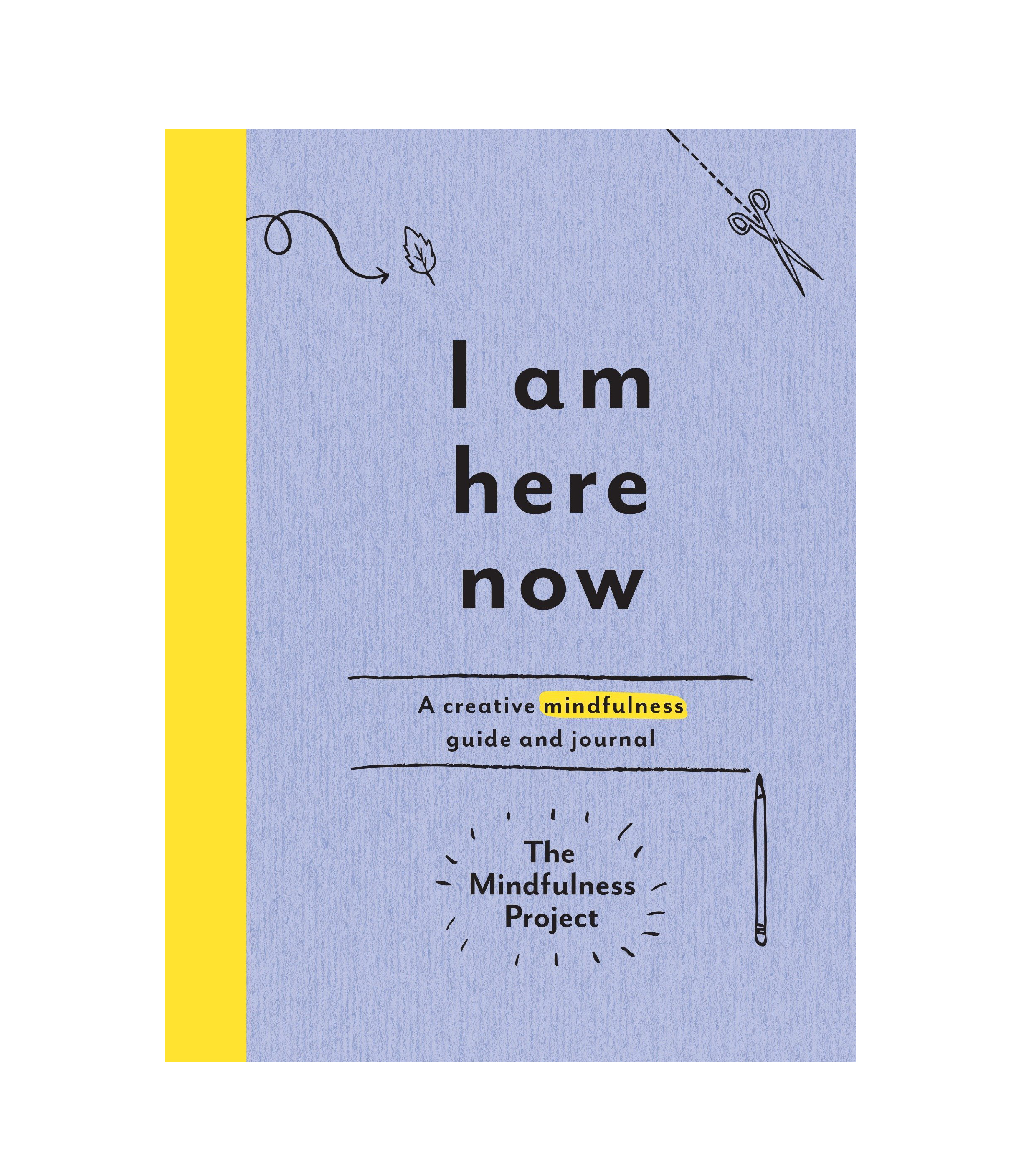16 Expert-Approved Tips for Managing Your Mental Health

Managing our mental health is one of the most important things we can do for ourselves. It might not seem like it, but our brains are working 24/7, so if they aren't staying healthy, then our lives will be impacted. You've probably heard some tips for managing your mental health before, like spending time in nature or going to therapy, but there's much more to it than that. To get the latest tips for managing mental health, I spoke with a life coach and three licensed therapists with clinical experience whose clients have found these strategies helpful. Hopefully you will, too.
(Disclaimer: This information should not be used in lieu of professional treatment. While these techniques might help improve your mental health, it's always best to see a therapist or psychologist for more intensive care.)
1. Write Down 3 Things You Are Grateful For

We rarely sit back and reflect on what we're grateful for and instead choose to focus on what's going wrong in our lives.
"The opposite of 'lack' mindset is gratitude, so it helps us better connect to the things we have instead of the things we do not have," says Libby Gordon, LCSW, founder and owner of BFRB Space in New York City.
Each day before you go to bed, write down three things you are grateful for. They can be anything from talking to a friend to having a hot meal. Keep at it because studies show that keeping a log of what you're grateful for can lower stress, help you sleep better, and even reduce the risk of heart disease.
2. Remember You're Doing the Best You Can

Your best isn't going to be the same as someone else's, and that's okay. As the old saying goes, "Comparison is the root of all evil." So just give yourself some grace, and understand that engaging in negative self-talk isn't going to make you feel any better.
"We can be so hard on ourselves in the hopes of motivating us for the better, but that often demotivates us and creates shame," Gordon shares. "Cut yourself a break, plan some time for yourself, and you'll feel better for it."
3. H.A.L.T.

Sudden mood changes or shifts in emotion are often caused by feeling one of four ways:
a. Hungry
b. Angry
c. Lonely
d. Tired
"Take a pause to check in with yourself," Gordon says. "Chances are it's one of those that needs to be addressed. If it's not one of those, you might want to assemble your team to help you feel how you want to feel."
4. Just Get Started

We've all been there before: you want to feel motivated to do something, whether it's studying for a test or hitting the gym, but getting started is the hardest part.
"Keep it simple and set an intention," Gordon says. "Do what you need to do. Reward yourself with a small splurge meal, find an 'accountability buddy,' and acknowledge yourself when you do something."
5. Find a Support System

Surrounding yourself with people who understand and relate to your struggles is one of the most helpful things when it comes to managing your mental health.
"We all need our people, whether it's family, old friends, new friends, work culture, hobby groups, sports teams, religious organizations, social groups, or clubhouses," Gordon says. "If you're not feeling like yourself, you might have been away from your people for too long."
Some easy ways to find a community and develop a support system include trying a new hobby or sport, browsing through meetup.com and other social media platforms for events, and looking into workshops and group therapy.
6. Recognize That Your Thoughts Are Not Facts

Sometimes it's easy to convince ourselves that our thoughts are facts, but that's not the case. An easy way to avoid this is to challenge your thoughts.
Kelly O'Sullivan, LCSW, who often works with millennial women dealing with anxiety, suggests three ways to challenge your thoughts:
1. Sit with your thoughts, and acknowledge them. Remind yourself that your thoughts are nothing more than a series of neurons firing in your brain.
2. Try writing in your journal as a way to release and process your thoughts. Then reflect on what you wrote.
3. The next time you have an anxious or worrisome thought, pick out the worst thing that could happen, the best possible outcome, and the likely outcome. Choose rationality by creating rational thoughts—don't get carried away on another neuron!
7. Set Healthy Boundaries

Boundaries are important in managing mental health because sometimes people in our lives can be the most draining, even if they aren't trying to be.
"You can love and care for the people in your life, and you can need to set more boundaries with them," O'Sullivan says. "Caring for the people in your life doesn't mean your relationships are destined to be in the same place forever. You can still set boundaries."
8. Stop Future Tripping

Do you find yourself constantly wondering, "What if?" Well, you're not alone. Many of us with anxiety tend to worry about the worst scenario.
"Future tripping gives us a false sense of control. But in reality, no amount of worry can change the future. It just ruins the present," O'Sullivan shares.
Think about the best and worst scenarios that could happen, and prepare for both, so when you're met with either you can approach them head-on.
9. Don't "Should" Yourself

Do you often recall yourself saying things like, "I should have worked out," or, "I should be happy"? If this sounds like you, then you're not alone.
"When you 'should' on yourself, you are judging yourself against an imagined standard or expectation," O'Sullivan says. "It'll leave you thinking that you're doing something wrong and are not enough, which can lead to anger, resentment, anxiety, or depression."
10. Follow Up With All Your Healthcare Providers

While going to therapy is important, it's also essential to look at your body holistically. After all, there's a strong link between mental health and physical health.
"Depending on your unique needs, you may want to check in regularly with the following providers: therapist, psychiatrist, primary care physician, gynecologist, dermatologist, and other specialists," says Maggie Osinski, LCSW, a licensed clinical psychotherapist who specializes in treating eating disorders.
11. Practice Mindfulness

Mindfulness isn't just a buzzword you've seen floating around social media. It's also a practice that can help you stay more present.
"It is important to use mindfulness to tune into how your thoughts are playing a role in your life and to learn how to better manage them in order to impact how you feel and ultimately show up in the world," Osinski says.
Here are some techniques for adding mindfulness into your self-care routine:
1. Take a seat with your eyes closed.
2. Notice the sensations in your body.
3. Take three deep breaths, and notice your stomach rising and falling with each one.
4. Set an intention for the day. What do you want to achieve?
5. Check in with yourself throughout the day.
12. Write in a Journal

Grab a piece of paper and a pen, or open up a blank document on your computer, and let the words spill out onto the page. To make journaling more fun, get creative with it. Use different prompts, try out different colored markers and fonts, and add in some pictures if you feel inclined.
"Journaling helps to relieve anxiety by providing a space to let all your anxious thoughts and feelings pour out," Osinski shares. "Our thoughts get so tangled up inside our heads that it feels freeing to untangle them on a piece of paper. When thoughts are written down, we can come back to them later."
13. Do Something for Others

You know how it feels better to give than to receive? The same idea can be applied to mental health.
"Contributing is helpful for those who need some distraction and could benefit from feeling purposeful," Osinski says. "Finding ways to contribute to others and to society—like volunteering, writing a loved one a letter, painting a friend a picture, or donating unused items—are a few ways that can help us improve our mood when we are feeling down, unmotivated, or hopeless."
14. Create a Vision Board

When you're feeling anxious about the future, try making a vision board. "Creating a poster or paper that you can write your future goals on can ground you and help you make decisions that will benefit your future," says life coach Kaitlyn Cahalen, the founder of Apart From the Rest Coaching Services.
15. Go for a Walk Outside

Have you ever heard the saying, "Nature is the best medicine"? Well, it's true to a degree. "This gives the body vitamin D, and the exercise from walking helps with stress. Being one with nature calms the body and helps you reset," Cahalen says.
16. Filter Your Social Media

It's true that what you consume on social media has an impact on your mental health. "Go through your news feed and see how you can make your social media a positive place," says Cahalen. "Unfollow anyone or anything that gives you bad feelings or lowers your self-esteem. Follow people and pages that inspire you, make you better, and encourage you to be the best version of yourself."
Next, This Is How Therapists Help Their Patients Practice Self-Love
This article is provided for informational purposes only and is not intended to be used in the place of advice of your physician or other medical professionals. You should always consult with your doctor or healthcare provider first with any health-related questions.



